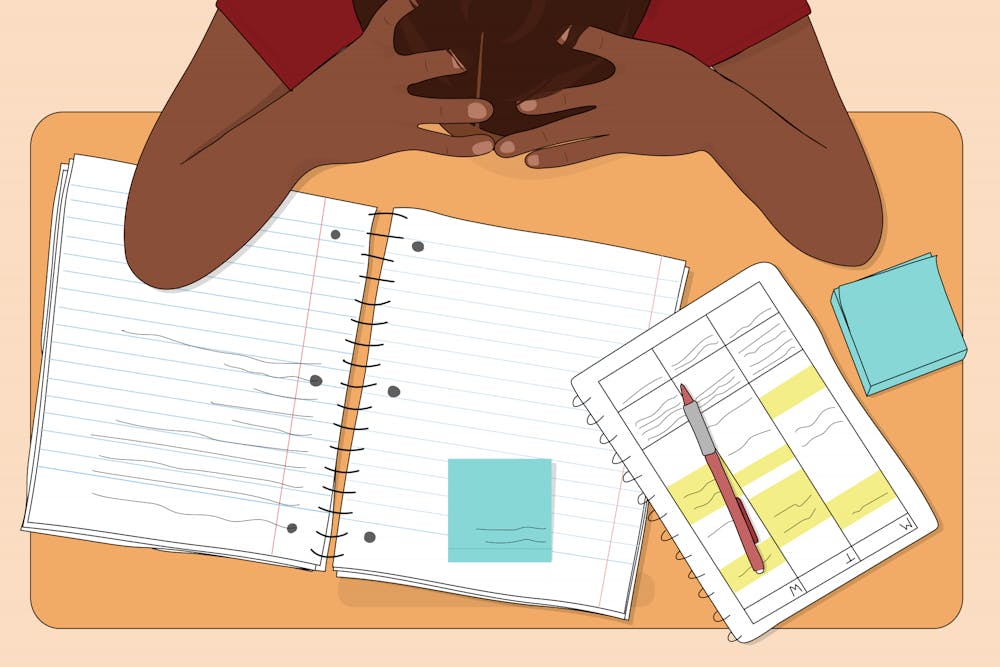Last year, many students spent the entire year taking online classes, but this fall, in-person classes have started again. The toll on students’ motivation and mental health from a year of online courses is making the transition back to in-person hard.
For many students, this semester is the first time they've been in an actual classroom in nearly a year and a half – or since USC implemented online learning in March 2020.
Classes being online last year had a big effect on students’ motivation. A survey from the Student Experience in the Research University reported 76% of all undergraduates said a lack of motivation was the biggest obstacle when learning online.
Lack of focus was also a problem during online classes – it’s too easy to turn off the camera and lay in bed on the phone instead of actively listening to what the professor is saying. Additionally, many professors recorded their lectures and put them online for students to access, making it even easier to slack off or not even come to class.
This was true for many students, including fourth-year psychology student Jordan Deger who said she noticed how her engagement and willingness to pay attention in class changed.
"It’s so much easier, I think, when you’re online to check your texts on your computer,” Deger said. “It also, I don't know, it's just a little bit harder to focus on everything.”
Finally, some students were just tired of being on their computers.
April Scott, associate director of mental health initiatives at University Health Services, mentioned what she saw in students' engagement and attendance in programs.
"There was a significant decline in engagement from students. And what I heard from students is they were tired of Zoom. There was Zoom fatigue, even if it was an organization or a club that they enjoyed. They just were tired of being on camera or having to log into something.”
Moreover, online classes also often come with online tests. Some professors also allowed students to use notes they’d taken for tests, which, while it can help in the moment, it can hurt with long-term learning.
Since some students haven’t taken an in-person test in a year and a half, they might experience test anxiety going back.
The most significant difference between online and in-person classes, however, are the effects on mental health.
A blog post by High Focus Centers, a mental health treatment center, said that online classes could cause social isolation, which has been shown to cause a higher rate of adverse outcomes for students’ mental and physical health. This isolation can also produce high levels of stress and anxiety while creating virtual learning fatigue.
When you take high levels of stress and mix it with a lack of motivation, many students can experience burnout.
“Burnout has always been an issue in higher education, but I think when you tack on a pandemic, it definitely exacerbates it, because now everybody is kind of experiencing this same level of burnout which you usually don’t have,” Scott said.
Deger said she also felt that effect.
“Something about the COVID burnout, you didn’t want to sit down and look at your computer screen anymore. It’s so exhausting, and so that was more like, I think sometimes, more of a mental burnout,” Deger said.
Returning to in-person classes poses its own set of challenges.
On one hand, students have missed a year and a half of what college should be, and many have a lot of interest in having a "normal Carolina experience," Scott said. But on the other hand, returning to campus can be extremely daunting.
The university needs to consider that it’s been an immensely challenging year for us all when deciding how to ease students back into this non-virtual semester. This transition will be interesting, and hopefully, students will start to feel their lives are going back to normal.

